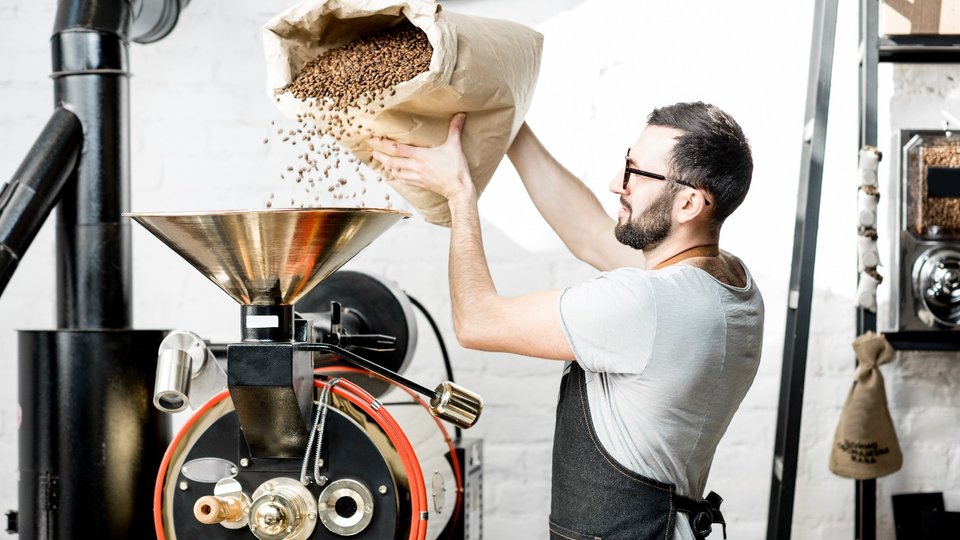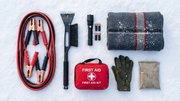Commentary
Buying used commercial coffee roasting equipment? A reputable broker can help
Used roasting equipment can offer coffee service operators many benefits over buying new, but the operator needs experienced guidance. Here is where brokers play an important role.

October 9, 2023 by Rick Davis — CEO, Coffee Equipment Pros
If you've been in the commercial vending or industrial food and beverage service industries for any length of time, then you might know that equipment procurement departments' attitudes toward purchasing used equipment can vary depending on several factors. This can include the specific industry, the type of equipment in question, the budget constraints and the organization's overall needs.
As someone who has been in the used and new industrial coffee equipment industry for about 20 years, I've worked with customers spanning from small artisanal coffeehouses to very large industrial operations. I've supplied them with everything from the coffee roaster (new or used) to all the additional ancillary new equipment, including loaders, destoners, grinders, K-cup filling and sealing machines, cold-brew systems and much more. And I'm here to tell you that no matter the budget size or operational focus, the same potential benefits and considerations about purchasing used industrial equipment continuously find their way into our conversations.
Additionally, I've watched with interest how commercial food and beverage institutions are increasingly embracing the trend of in-house coffee roasting and cold-brew systems. I believe this shift is driven by a desire for greater control over the coffee quality, long-term cost savings, the ability to create unique coffee blends, and meeting the growing demand for specialty coffee.
However, moving to in-house coffee roasting requires expertise to know what kind of commercial equipment to invest in. That's where a coffee equipment broker with an emphasis on consultative sales, relationship-building and the ability to build an equipment package (optionally with financing) can support your efforts.
All of which is to say, if you're responsible for procurement or are working with that team to approve your request for used equipment, I'd like to share some thoughts that might impact the decision making. Since I'm coming from the industrial coffee roasting equipment world, I'll speak in those terms, but the considerations below can apply to any type of used industrial equipment you might be thinking of purchasing.
Benefits of buying used
1. Cost savings. Many procurement departments view purchasing a used industrial coffee roaster or roasting equipment as a practical way to save money. Used equipment is often available at a fraction of the cost of new equipment, making it an attractive option for organizations with budget constraints.
2. Value for money. Buying used coffee roasting equipment can provide excellent value for the price paid. It allows organizations to acquire high-quality machinery that may have been unaffordable if purchased new.
3. Immediate availability. Used coffee roasters and roasting equipment are typically readily available versus waiting months for a newly built machine, which can be advantageous when there's an urgent need to replace or expand equipment. It can help minimize downtime in operations.
4. Sustainability. In today's environmentally conscious business environment, some procurement teams appreciate the sustainability aspect of purchasing a used commercial coffee roaster or roasting equipment. It extends the lifespan of products and reduces the demand for new manufacturing, contributing to a greener approach.
Considerations for buying used
1. Quality and reliability. One of the primary concerns with used industrial coffee roasting equipment is its quality and reliability. Procurement departments must assess the equipment's condition to ensure it meets the organization's performance standards and won't lead to frequent breakdowns or maintenance issues. That's why working with an experienced used equipment broker with a thorough vetting system is critical.
2. Warranty and support. Used coffee roasting equipment may not come with the same warranty and support options as new equipment. Procurement departments must consider the potential costs of repairs and maintenance when evaluating the overall cost effectiveness of used equipment. A reputable used equipment broker might offer a post-sale program for equipment servicing, so put this on your list to inquire about.
3. Fit for purpose. Determining if the used coffee roasting equipment suits the organization's specific needs is crucial. Compatibility with existing systems and processes is a key consideration to avoid operational disruptions. An experienced used equipment broker will serve as your consultative partner to determine which equipment will best serve your purposes.
4. Resale value. Some procurement teams think about the resale value of used industrial coffee roasting equipment. They consider how well the equipment will hold its value and whether it will be easy to sell when it's no longer needed.
5. Supplier reputation. The reputation of the seller or supplier of used coffee roasting equipment matters. Procurement teams prefer to work with reputable sellers who provide accurate equipment descriptions and histories. An expert broker will know to ask the right questions to reveal the equipment's status and relocation capabilities, handle all the back-and-forth communications with buyer, seller and logistics vendors, and possess the ability to handle unforeseen issues that arise.
6. Safety and compliance. Ensuring that used commercial coffee roasting equipment complies with safety and industry regulations is essential. Procurement teams need to verify that the equipment meets all necessary standards. Again, a customer service-focused used equipment broker will help ensure that the used coffee roasting equipment you're purchasing meets local and industry standards. A good used equipment broker should be able to connect you with local technicians to help install and commission your used roasting equipment per local requirements.
7. Total cost of ownership. Procurement departments often conduct a total cost of ownership analysis, which considers the purchase price and ongoing operational costs, maintenance and potential downtime associated with a used coffee roaster or roasting equipment.
So, where does this leave us? At the end of the day, procurement teams are right to approach the purchase of used commercial or industrial equipment (including coffee roasting equipment) with a balance of optimism and caution. It's prudent to recognize the cost saving potential and the many benefits of buying used, but also understand the importance of due diligence in assessing quality, reliability and suitability for the organization's needs.
The key is to ensure you're working with an equipment broker who is reputable, organized and has proven systems in place to guarantee that you end up with the perfect "new to you" equipment to support your operations. Just as you vet your used equipment, I also encourage you to vet your equipment broker. The tips below can steer you in the right direction.
Signs of a reputable used equipment broker
1. Strong service guarantee. This ensures a high level of service where you are the number one priority.
2. Quick equipment delivery. This means you receive your equipment immediately after your payment is received.
3. Constant communication. Contact should be ongoing through every step of the sales transaction. You should always know the next step.
4. Solid financing program. A good broker's lending program will be competitive and offer good options.
5. Recent reviews. Look for Google reviews that can't be manipulated — not just the broker's hand-picked choices on their website or marketing channels.
6. Deep equipment knowledge. A good equipment broker will have the ability to offer wise guidance, bolstered by ample "in the field" experience.
7. Excellent negotiating skills. A good broker has a solid understanding of professional sales best practices and used equipment market prices.
8. Transaction experience. An experienced used equipment broker will know how to handle all paperwork, including agreements, bills of sale and loan releases.
9. Equipment relocation logistics. A good broker will have the ability to handle decommissioning, crate and freight, tracking and confirmation of delivery, installation and equipment commissioning, if needed.
10. Post-sale support and relationship. This is the most important sign, as any reputable equipment broker will know that the relationship starts with the sale — it doesn't end with it. A good broker will include technical service support, either in-house or with connections to it, plus leads on additional equipment that would round out and benefit your operations.
About Rick Davis
Rick Davis, CEO of Coffee Equipment Pros, is a seasoned professional with over 20 years of experience in the coffee industry, specializing in marketing, sales, installations, relocations, and sourcing solutions. Rick’s memorable 2013 origin trip to Panama, including an exhilarating hike up 5,900 feet to Finca la Mula, a well-known Geisha farm owned by world-renowned coffee expert Willem Boot, stands as a testament to his commitment to the coffee industry.
 ChatGPT
ChatGPT Grok
Grok Perplexity
Perplexity Claude
Claude






